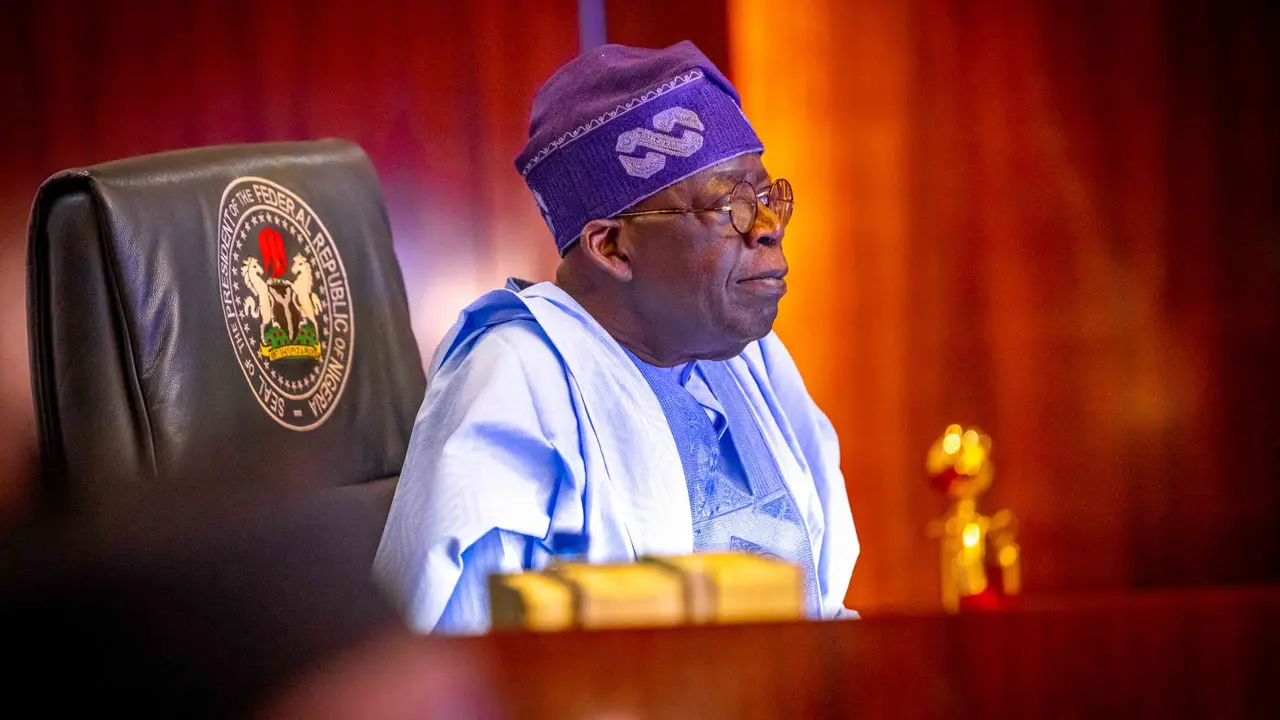
President Bola Ahmed Tinubu’s bold economic move to ban the procurement of foreign goods and services by government institutions is receiving widespread praise from economic experts and industry leaders. Stakeholders have hailed the policy as a major catalyst for local industrial growth and a potential turning point for Nigeria’s struggling economy.
A Game-Changing Economic Policy
Announced after Monday’s Federal Executive Council (FEC) meeting, the policy—branded as the Nigeria First Policy—was unveiled by the Minister of Information and National Orientation, Mohammed Idris. The goal is clear: prioritize Nigerian-made goods and services, reduce dependency on imports, and strengthen the naira.
The policy covers all Ministries, Departments, and Agencies (MDAs), preventing them from sourcing foreign goods or services that can be locally produced. To reinforce this initiative, the Attorney General has been tasked with drafting an Executive Order to provide legal backing.
“The Nigeria First Policy is expected to become the cornerstone of the administration’s economic strategy,” Idris said. “It aligns with our goals for industrialization and import-substitution.”
Big Boost for Local Giants Like Dangote and Innoson
With this shift, stakeholders believe Nigerian manufacturers such as Dangote Group, Innoson Vehicle Manufacturing, and other indigenous enterprises will finally receive the institutional support they’ve long needed. Products from the Dangote Refinery, locally made vehicles, pharmaceuticals, uniforms, and even furniture are now expected to gain a dominant position in public sector procurement.
According to the Centre for the Promotion of Private Enterprise (CPPE), Nigeria imported goods worth ₦16.6 trillion in Q4 2024 alone, underscoring the urgent need for a policy shift. If this ban is properly implemented, that figure could decline significantly in 2025 and beyond.
Experts React: “A Policy Long Overdue”
Muda Yusuf – CEO, CPPE
Yusuf emphasized that the ban could trigger a chain reaction of positive economic effects, such as:
-
Increased GDP contribution from local manufacturing
-
Job creation across sectors
-
Conservation of scarce foreign exchange
-
Empowerment of young Nigerians in tech and service sectors
“We must prioritize what is made domestically—not just goods but also services,” Yusuf stated. “We’re talking about creative advertising, IT services, software development, and more. We import services worth $10–15 billion yearly. That has to change.”
He also advocated extending the policy beyond procurement to include trade policy reforms that give Nigerian products better protection and competitiveness in both local and international markets.
Gbolade Idakolo – CEO, SD&D Capital Management
Idakolo believes the policy could lead to significant macroeconomic improvements, especially in exchange rate stability.
“This policy, if implemented thoroughly, will reduce import dependency, strengthen the naira, and build a more resilient local economy,” he noted. “Nigeria’s balance of trade was in surplus in 2024—the first time in a decade. We can sustain that momentum with this policy.”
“Nigeria Will Become a World Power” — Gillis-Harry
For Billy Gillis-Harry, the National President of the Petroleum Products Retail Outlets Owners Association of Nigeria (PETROAN), the policy is a landmark decision. In his words:
“This is the best news I’ve heard in my 65 years of living in Nigeria. If we implement this policy from top to bottom, Nigeria will emerge as a global economic power. It’s time for all Nigerians—from the presidency to the grassroots—to make the necessary sacrifices.”
Gillis-Harry also serves as Chairman of the Board of Trustees for the Coalition of South-South Chambers of Commerce. He emphasized that genuine commitment and enforcement across all levels of governance are critical to the policy’s success.
What’s at Stake?
This policy arrives at a critical juncture. According to the IMF, Nigeria’s GDP is currently estimated at $253 billion, trailing behind countries like Egypt, South Africa, and Algeria. By cutting down on unnecessary imports and boosting local productivity, Nigeria stands a chance to close the gap and reclaim its spot as Africa’s economic giant.
The Road Ahead: Implementation Is Key
While the policy’s vision is commendable, all eyes are now on its implementation. Past governments have announced similar initiatives with little follow-through. Stakeholders stress the need for strong monitoring, legal backing, and public awareness to ensure compliance.
As Nigeria stands on the cusp of an economic transformation, the success of the Nigeria First Policy could mark the beginning of a new era—one where local industries thrive, jobs are created, and the economy becomes less vulnerable to global shocks.
Stay tuned for more updates as the policy rolls out and its real-world impact begins to unfold.






Be the first to comment